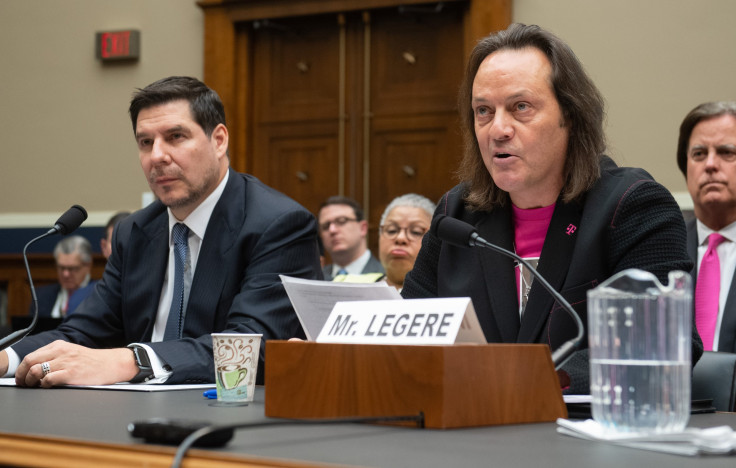Sprint, T-Mobile Merger: 10 States Sue To Stop Merger Over Competition, Jobs

Fresh trouble is brewing for the merger of wireless carriers Sprint and T-Mobile after 10 states led by New York and California filed a lawsuit urging to stop the deal on the ground of injury to consumer interests and loss of jobs.
On Tuesday, New York Attorney General Letitia James and California Attorney General Xavier Becerra announced the lawsuit seeking to stop the $26 billion T-Mobile-Sprint Corp merger plan.
Filed in the U.S. District Court for the Southern District of New York, the lawsuit coincides with the U.S. Justice Department’s ongoing final stage scrutiny of the Sprint and T-Mobile deal.
The complaint mainly harped on a hike in consumer prices due to reduced competition. The fear that the merger would reduce the number of wireless carriers from four to three was reiterated in the lawsuit.
Commenting on the concentration vs competition plank, Attorney General Letitia James said, “when it comes to corporate power, bigger isn't always better.”
The lawsuit categorically says the reduced competition would hurt Sprint and T-Mobile subscribers and they lose more than $4.5 billion annually.
The lawsuit is backed by Democratic attorneys general from states such as Connecticut, the District of Columbia, Colorado, Maryland, Virginia Michigan, Wisconsin, and Mississippi.
FCC’s conditional nod and DoT’s scrutiny
The deal has already crossed the halfway path. In May, the FCC or Federal Communications Commission announced that the approval for the merger can be considered provided the duo met certain conditions to address consumer concerns including divesting of Boost Mobile by Sprint. The final nod has to come from the Justice Department or DOJ.
“This is the third time T-Mobile has tried to merge and shrink the market to three players,” said California Attorney General Xavier Becerra.
The lawsuit noted that the rollout of 5G networks can take place even without the merger and divesting Boost Mobile by Sprint will not undo the damage to competition from the deal. The Sprint CEO did not comment.
The T-Mobile stock was down 1.4 percent at $75.28.
Noting that T-Mobile's main shareholder, Deutsche Telekom has been aiming consolidation in the wireless network market, the lawsuit alleged that for many years it has been looking for “less competition and better returns for network operators.”
Main concerns over Sprint, T-Mobile merger
According to the complaint, the merger of T-Mobile and Sprint needs to be opposed mainly on its effort in curtailing the choices of consumers and “punishing lower-income communities” for whom, even the slightest hike could be unbearable.
Substantial loss of retail jobs in the wireless space is another concern and wage-cut of those already working in the sector is a definite fallout.
The complaint drilled holes into the duo’s claim of offering expanded rural coverage from the merger.
Noting that they gave “significant consideration” to the aspect of enhanced rural coverage, the lawsuit said they did not find any evidence of T-Mobile making any cell site expansion in areas not served by at least one of the two networks.
The complaint also said there is no basis in the claim that a merger was essential to foster 5G and noted the rush to introduce LTE or long time evolution has to be a product of “competition, not concentration.”
T-Mobile CEO slams ridiculous arguments
Meanwhile, T-Mobile CEO John Legere said the anti-merger voices against T-Mobile’s union with Sprint is similar to what it heard when T-Mobile merged pre-paid provider MetroPCS in 2013.
The CEO noted that “the same group of people” are opposing the deal citing the same set of ridiculous arguments that were used for halting the T-Mobile-MetroPCS transaction.
But the way in which Metro PCS deal passed and fulfilled commitments testify that T-Mobile never hurts consumer interests.
© Copyright IBTimes 2025. All rights reserved.





















